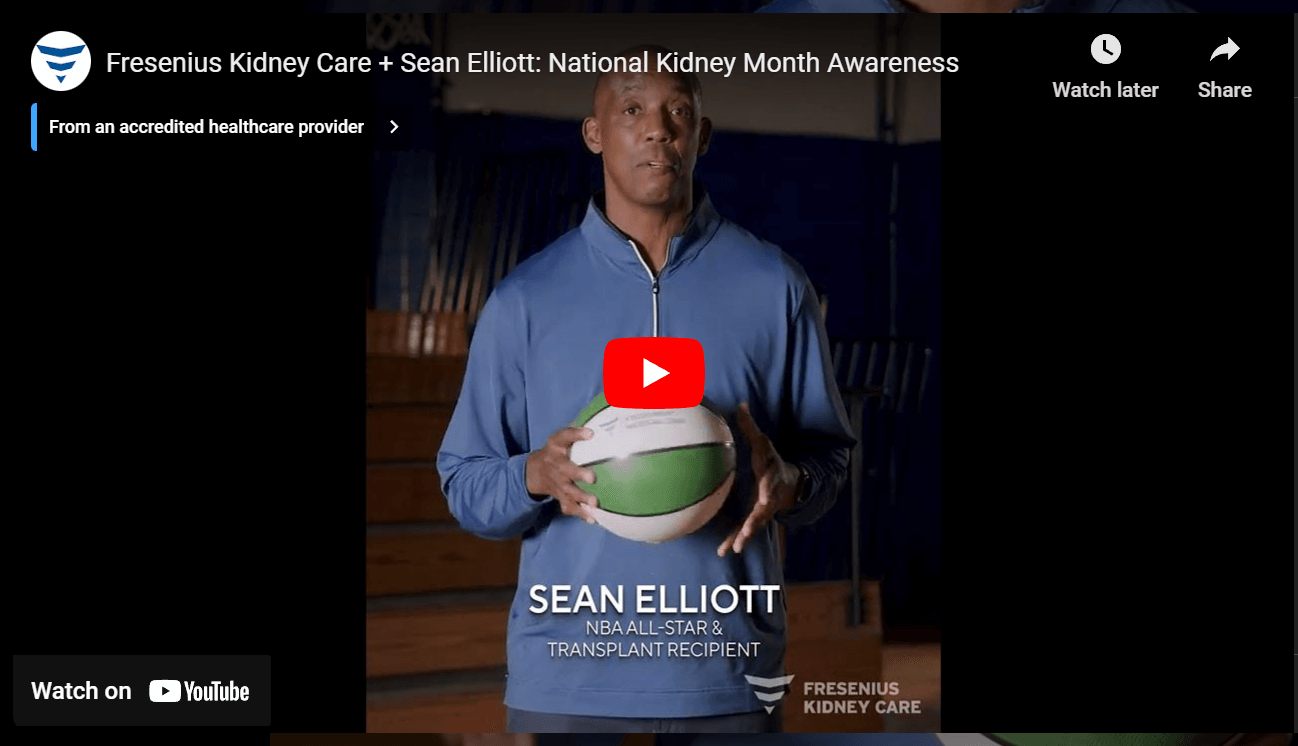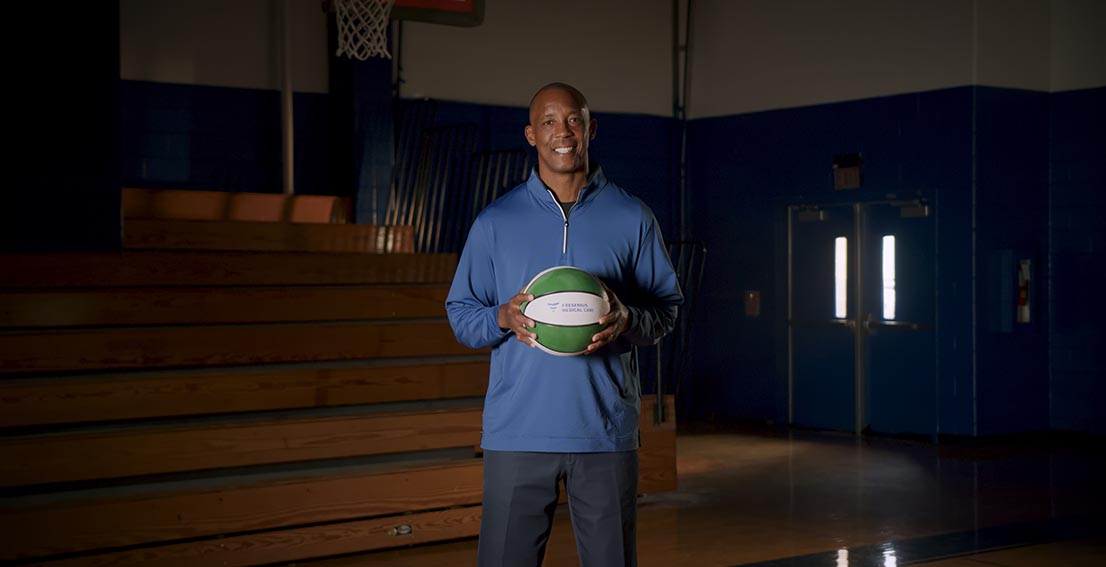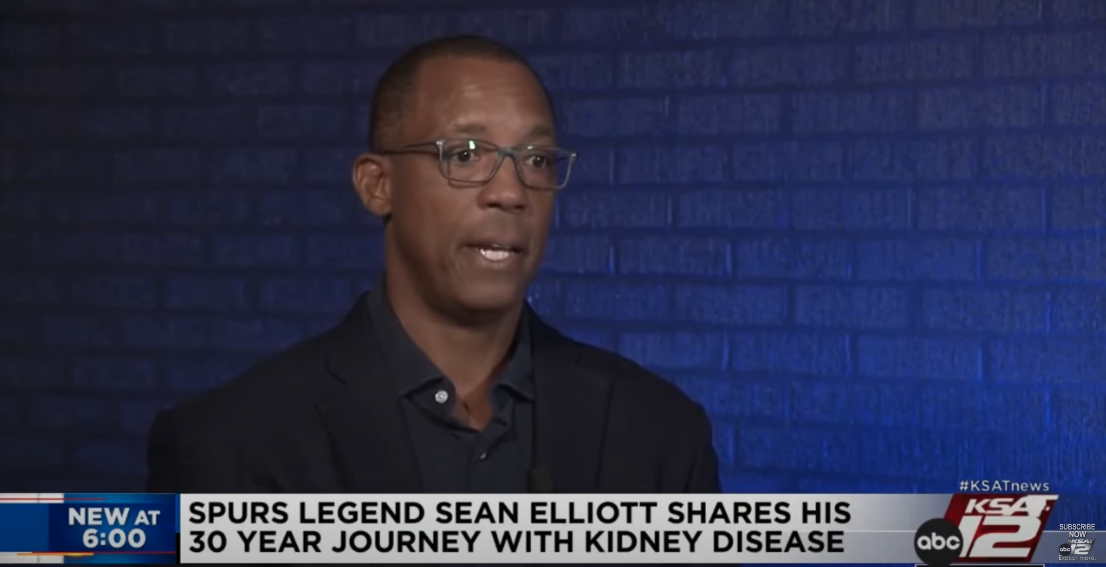Sean Elliott Raises Awareness of Kidney Disease

By sharing his story, he hopes to educate people about recognizing the signs of kidney disease and knowing when to get tested.
"Kidney disease has affected my life, my family, and my career," Sean said. "I had a responsibility to my team to look after my health. Getting tested and monitoring my condition made it possible for me to find the right treatment, and even get back to the game I love."
Sean’s journey from diagnosis to transplant
Kidney disease is a broad term that covers several illnesses that affect your kidney function, including chronic kidney disease (CKD).
After the 1992-93 NBA season, Sean said he found himself feeling off. At just 25 years old, he blamed it on depression after losing to the Phoenix Suns in the NBA Playoffs.
“I couldn’t get out of bed for two weeks—I was very lethargic, I had started retaining all this water,” Sean said. “It finally came to a head when I woke up one morning and had trouble opening my eyes because my face was so swollen.”
Sean was diagnosed with focal segmental glomerular sclerosis—a type of kidney disease that causes scarring on the kidneys and inhibits their ability to filter excess fluids, waste, and toxins from the blood.
Years before he was diagnosed, however, risk factors for kidney disease were starting to appear.
“My very first physical I remember going to, I had high blood pressure, and I was 11 years old,” Sean told CBS Sports Radio’s Maggie and Perloff. “The doctors thought, ‘You’re just nervous walking into a doctor ’s office,’ but I had high blood pressure my entire life, and that’s one of the contributing factors.”
For years after his kidney disease diagnosis, Sean continued playing basketball and living his life while understanding his treatment options. Shortly after Sean helped the San Antonio Spurs win their first NBA title with his buzzer-beating Memorial Day Miracle shot, he learned his kidney disease had worsened—and he needed a kidney transplant in 1999.
After some testing, Sean and his family found out his brother, Noel, was a match for a kidney transplant and became his donor. A living donation is an extraordinary gift as more than 97,000 people are waiting for kidney transplants in the United States and kidneys from a living donation tend to last longer. Knowing the facts about kidney donation and how to find a donor can make a big difference in getting a transplant.
“I tell everybody my brother is the poster child for organ donation,” Sean said. “I have heard so many stories about family and friends who matched as a donor but were afraid or reluctant to donate a kidney, saying, ‘What is going to happen to me?’ And that is a valid concern. But after donating, my brother has had three kids, is healthy, obviously alive and doing well. You would never know he has one kidney.”
In 2019, the pair celebrated the 20th anniversary of the successful kidney donation and transplant.
To learn more about how NBA star Sean Elliott transitioned to a kidney-friendly diet, check out this article from The Washington Post.
1 1. Organ Procurement and Transplantation Network. U.S. Department of Health and Human Services, Organ Procurement and Transplantation Network; 2022.
2 2. Centers for Disease Control and Prevention. Chronic Kidney Disease in the United States, 2021. Atlanta, GA: US Department of Health and Human Services, Centers for Disease Control and Prevention; 2021.
Suggested topics
What You Should Know as You Prepare for a Kidney Transplant
Right now, tens of thousands of people with kidney disease are considering or planning for a kidney transplant. If this is an option you’re starting to explore, you probably have lots...

Signs of Kidney Disease





